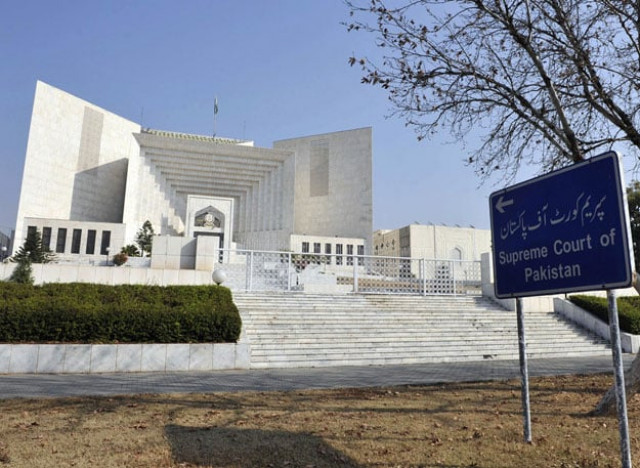Parliament cannot replace Islam with secularism: SC's Justice Ejaz Afzal
In the landmark judgment on 21st and 18th amendments, Justice Ejaz widely discussed importance of Two-Nation theory

Supreme Court. PHOTO: AFP
In the landmark judgment on 21st and 18th amendments, Justice Ejaz Afzal Khan discussed the importance of Two-Nation theory as well as the Objectives Resolution. The judgment was also endorsed by Justice Ijaz Ahmad Chaudhry.
Justice Ejaz in his 120-pages dissenting note observed that the incessant recurrence of anti-Muslim riots in India and atrocities committed against the Muslims in occupied Kashmir by the Indian security forces unabated continuity had left little doubt that the demand for a separate homeland on the basis of the Two-Nation Theory was perfectly justified from whatever angle it was looked at.
Read: 1973 Constitution an uneasy marriage between socialism and Islam, govt tells SC
“Islam, as aptly put by AK Dogar, petitioner in Constitution Petition No. 20 of 2010, is a structural base of the homeland founded for Muslims on the basis of the Two-Nation Theory. Therefore, the parliament cannot replace Islam with secularism nor can it replace the Federation with a confederation. This is what the Muslims of the subcontinent aspired and endeavored for. This is in essence, the raison d’etre for the establishment of the separate homeland,” he elaborated.
On the other hand, Justice Asif Saeed Khosa believed that the people and society of one given time cannot be held as hostage to or slave of the aspirations, objectives, values, morality or ethos of their forefathers, adding that evolution of people and societies is a reality and it would be nothing but naïve to believe or hold otherwise.
He further said that the people of East Pakistan lost their commitment to Pakistan and the lofty ideals attached to its creation, broke away and carved out a new State for themselves with new ideals and commitments.


1724319076-0/Untitled-design-(5)1724319076-0-208x130.webp)
















COMMENTS
Comments are moderated and generally will be posted if they are on-topic and not abusive.
For more information, please see our Comments FAQ